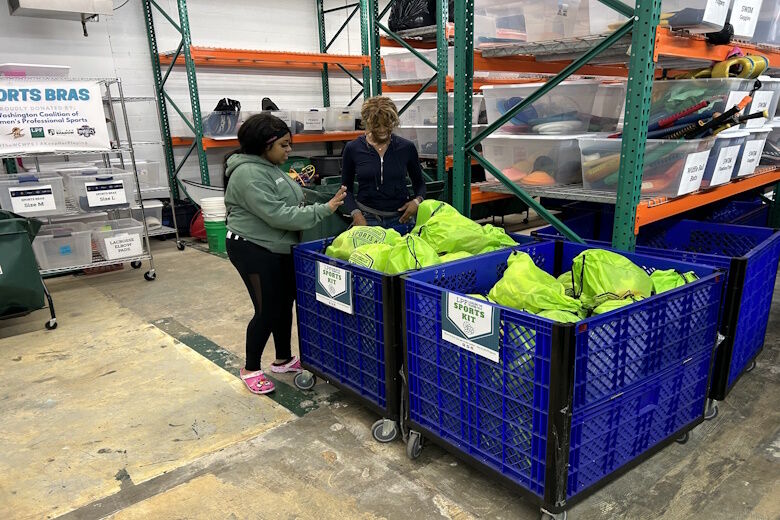
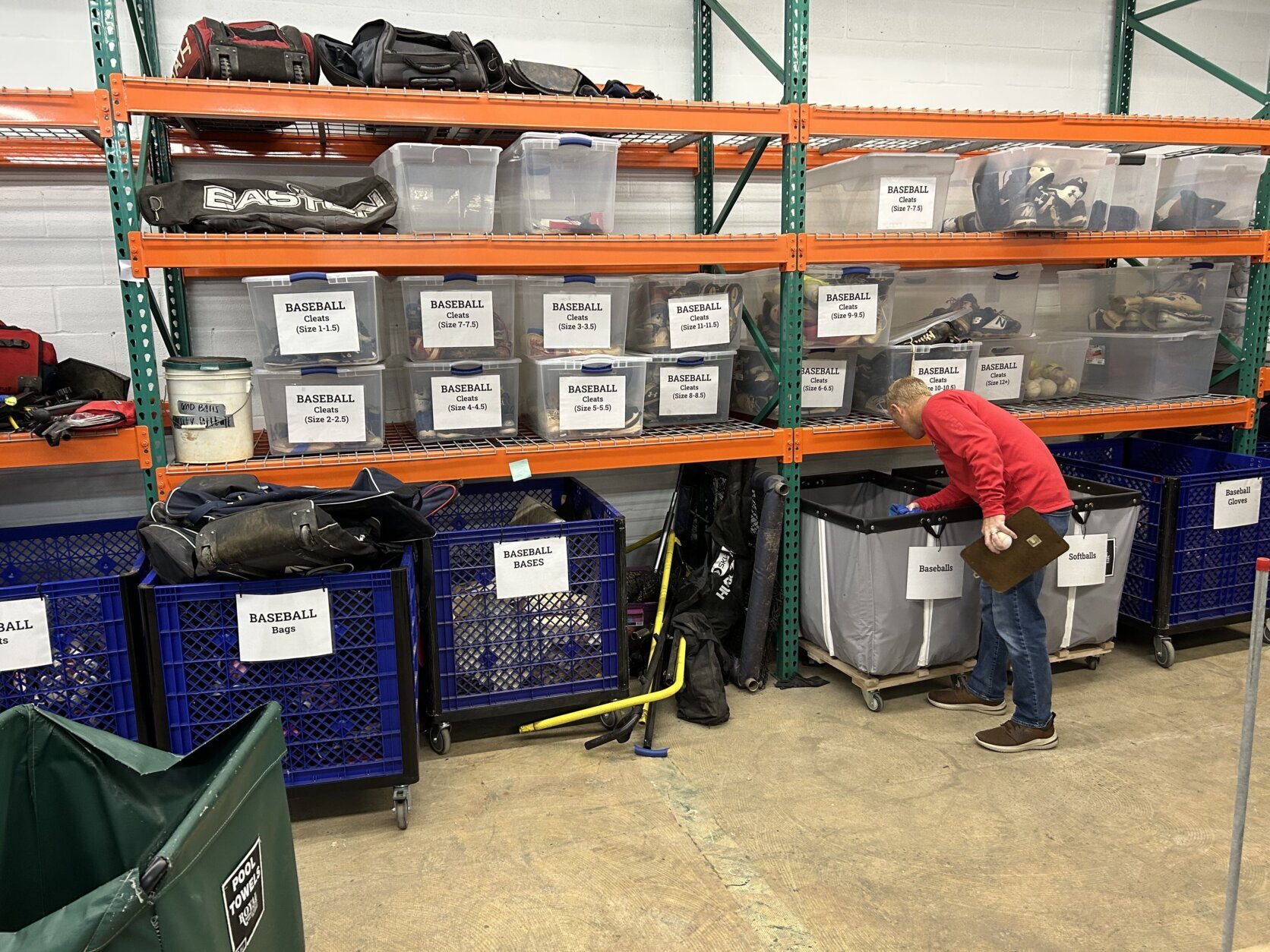
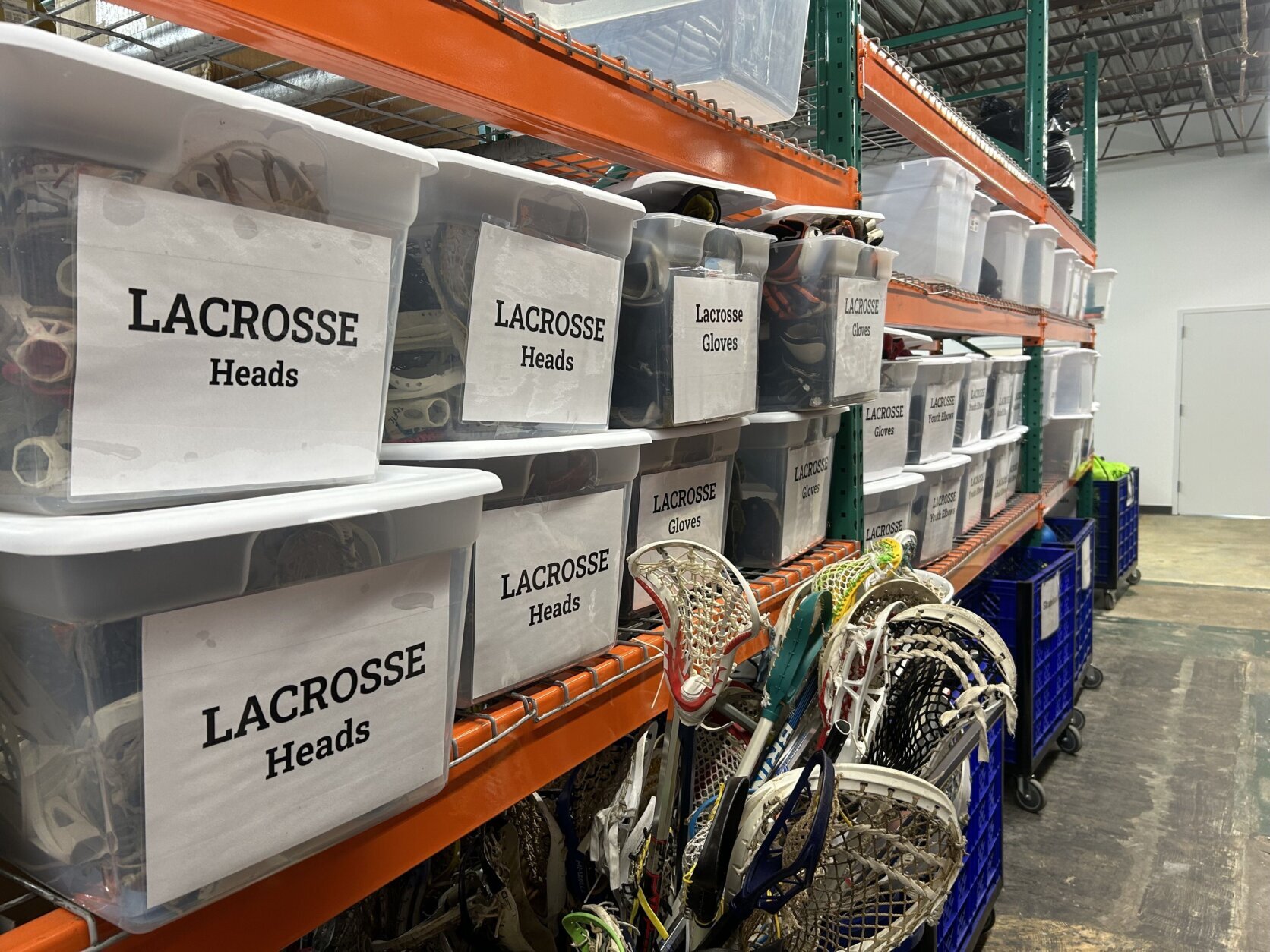
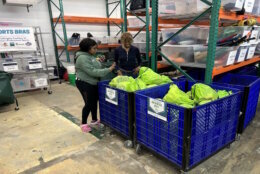
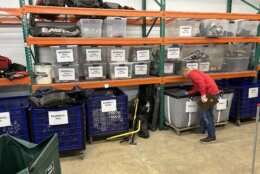
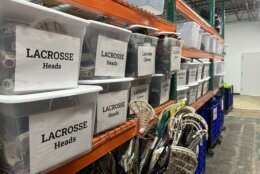
Some students at Allenwood Elementary in Prince George’s County, Maryland, have recently had the chance to play baseball and tennis as part of their physical education class.
The PE teacher’s budget wasn’t big enough for him to buy equipment for those sports, but because of a partnership with the organization Leveling The Playing Field, the instructor was able to increase the options in his equipment cabinet, according to Max Levitt, the organization’s founder.
“That’s a benefit we hear all the time — kids learning less traditional sports because the equipment in our warehouse provided a PE teacher, coach, nonprofit with the resource that they cannot afford,” Levitt said.
Levitt describes the nonprofit, which is approaching its 10th anniversary, as a food pantry for sports equipment. Every year, with the help of about 1,000 volunteers and a few paid staff members, over 300 local schools and other groups benefit from donated, used sports equipment.
After playing sports as a child in Montgomery County and working in the youth sports industry, college and professional football, Levitt said he noticed cost was a barrier to some kids playing certain sports.
Since launching Leveling The Playing Field, the group has opened warehouses in Silver Spring, Baltimore and Philadelphia, as well as Columbus, Ohio, and Buffalo, New York.
“There’s a huge demand for this stuff,” Levitt said of the sports equipment. “It’s too expensive. Yet, there’s a glut of it sitting in garages, sometimes a few zip codes over from that community in need.”
Most of the items in the warehouses are donated, Levitt said, adding that 80% of it comes from local families. In many cases, community members run donation drives, and drop off equipment either at the warehouse or in drop-off bins throughout the region.
The warehouse has equipment for hockey, baseball, football, basketball, tennis and golf, Levitt said. And, if a group is just operating an elementary school playground, the warehouse has frisbees, jump ropes, hula hoops and cones, among other things.
At least 80% of equipment is donated to communities in Montgomery and Prince George’s counties and D.C., he said. Once a program is vetted and approved to access the warehouse, someone can pick up however much equipment they want however often they need it.
In theory, Levitt said, “If you’re running an after-school program today, and a kid joins and wants to play soccer (and) doesn’t have the cleats or the shin guard, that that coach — that teacher, goes on their phone, schedules a visit the next day, comes in and grabs that kid’s size.”
On Tuesday, a representative from Highland Park Elementary picked up packs with items such as balls, cones and jump ropes. Someone from the Title I school in Hyattsville stops by the warehouse once or twice per year.
Jason Aquilante, meanwhile, stopped in Tuesday to get baseball gloves. He works with the group Angels Baseball to operate free after-school baseball clinics for Title I schools in Montgomery County.
When the group recently put out some used bats, “some kids would see these bats being knocked out, it’s not shiny enough, or it’s not new enough, oh, this is the XYZ model that was, three years ago, but these kids, they look at these bats, and it’s something they never used before,” Aquilante said.
When the kids see the equipment, he said, “their eyes light up and they’re ready to work.”
To donate or organize a donation drive, Levitt said to visit Level The Playing Field’s website.
“There’s no reason why a warehouse like this should not exist in every city across the U.S., and we can effectively remove the cost of sports equipment as a barrier for every family in this country,” Levitt said.








